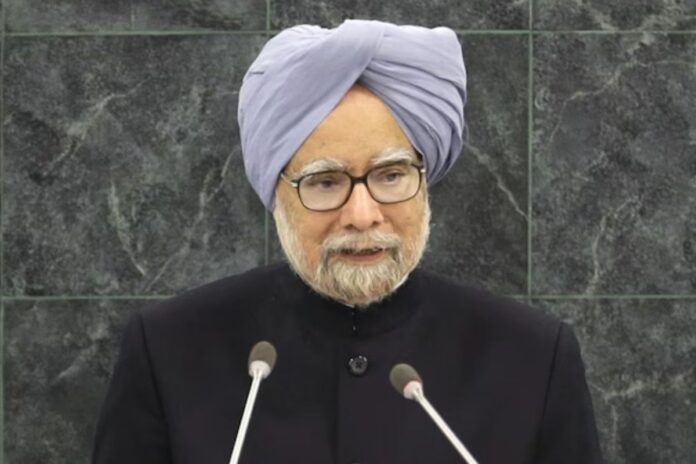
Dr. Manmohan Singh’s intervention during the 2005 protests at Jawaharlal Nehru University (JNU) stands as a testament to his belief in the democratic principle of dissent. The former Prime Minister, who visited the university to unveil a statue of India’s first Prime Minister Jawaharlal Nehru, was met with protests from student groups opposing his government’s economic policies. Rather than escalating tensions, Dr. Singh chose to shield the students from punitive action, a move that reflected his deep understanding of the importance of preserving democratic values.
The protest erupted as Dr. Singh began his speech, with students waving black flags and chanting slogans. Despite the disruption, Dr. Singh maintained his composure and addressed the protesters, invoking Voltaire’s famous quote, “I may disagree with what you have to say, but I shall defend to the death your right to say it.” Dr. Singh emphasized that this was the foundation of any liberal institution, further reinforcing the value of free expression.
Dr. Manmohan Singh’s Response to the Protests
The protests led to swift administrative actions at JNU, with the university issuing showcause notices to several students and a few being detained by the police. However, the very next day, Dr. Manmohan Singh personally intervened in the matter by calling JNU’s Vice-Chancellor, BB Bhattacharya, and urging him to be lenient with the protesting students. Dr. Manmohan Singh reportedly told Bhattacharya, “Please be lenient, sir,” ensuring that no severe action would be taken against the students, who were eventually let off with only a warning.
This intervention was seen as a defining moment of Dr. Singh’s tenure. A retired JNU professor, speaking to PTI, praised Dr. Singh’s actions, describing them as a reflection of his understanding of the vital role dissent plays in a democratic society. The professor noted that Dr. Singh’s intervention highlighted his commitment to safeguarding the rights of students, even in the face of opposition.
Dr. Singh’s Legacy of Protecting Student Rights
In the years following the incident, Bhattacharya acknowledged Dr. Singh’s crucial role in defusing the situation. He mentioned that while he had insisted on issuing warnings to the students, Dr. Manmohan Singh’s call had influenced his decision to take a more lenient approach. Bhattacharya also expressed concern about the breakdown in communication between students and university authorities, a sentiment that resonated with many at the time.
Swara Bhaskar, an actor and alumna of JNU who was a student during the protests, later recalled the episode as a defining moment in Indian politics. She shared her memories of hearing that the Prime Minister’s Office had intervened to prevent the expulsion of the protesting students, noting the stark contrast between the political environment of that time and the current state of affairs. Bhaskar lauded Dr. Singh as a great leader who respected the democratic rights of students to voice their dissent.
Reflections from Former Students
The 2005 protests at JNU were not just a moment of political expression; they were a reflection of the larger student movement that sought to challenge government policies. Umar Khalid, a former JNU student leader who later became known for his involvement in political activism, also reminisced about Dr. Manmohan Singh’s defense of the students’ right to protest. Khalid highlighted the significance of Dr. Singh’s actions in defending democratic values and the rights of students to question authority.
This incident, which took place nearly two decades ago, remains a key example of how leaders can respond to dissent with empathy and understanding, protecting the principles of free speech and protest. In today’s political landscape, such gestures stand in stark contrast to the often authoritarian responses to student movements.


